Low Cholesterol Diet: Improve Your Heart Health Naturally
Simple food changes can leave your heart stronger and your body healthier.
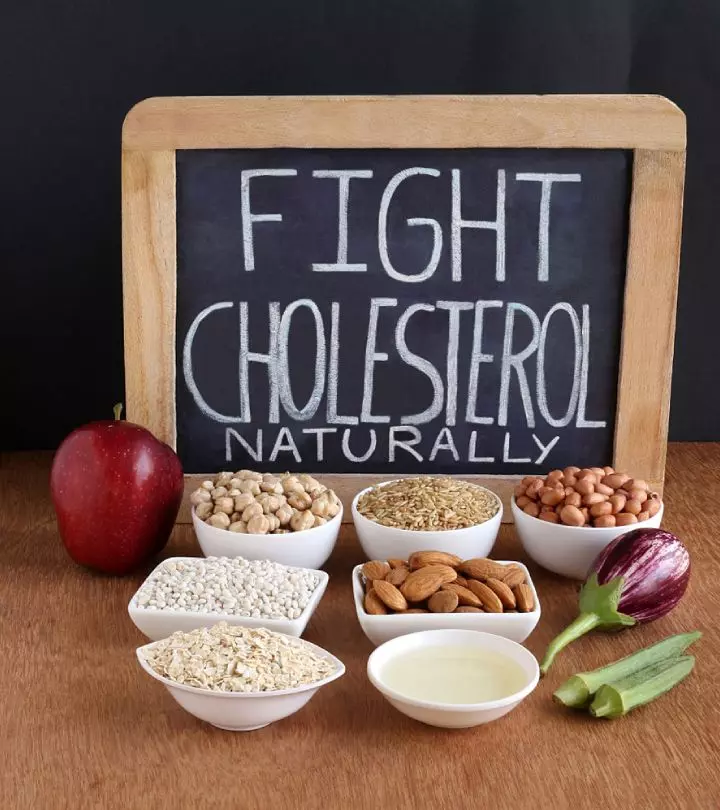
Image: Shutterstock
In an era where the importance of health-conscious living is increasing, the low cholesterol diet has gained a lot of popularity. Cholesterol plays a crucial role in our overall health but when its levels rise beyond the recommended limits, it can lead to heart disease, stroke, and other life-threatening conditions. So a low cholesterol diet acts as a nutritional approach that not only helps people maintain optimal cholesterol levels but also promotes a healthier, happier life. Whether you are a health enthusiast looking to enhance your vitality or someone seeking ways to manage cholesterol levels, this diet can help you in your journey towards better health. Let’s explore the fundamental principles behind this diet, the benefits of adopting it, including its emphasis on mindful food choices, exercise, and lifestyle adjustments to enhance overall well-being.
 At A Glance: Low Cholesterol Diet
At A Glance: Low Cholesterol Diet- Principle: Decrease the intake of foods high in trans fats, sugar, and carbohydrates.
- Purpose: To reduce the risk of cardiovascular diseases.
- Who It Is For: Individuals with high cholesterol or high LDL levels.
- Duration: Long term
- Who Should Avoid: People who do not have high cholesterol, growing children, and pregnant and breastfeeding women.
- Cons: May increase the risk of nutritional deficiencies.
In This Article
What Is Cholesterol?
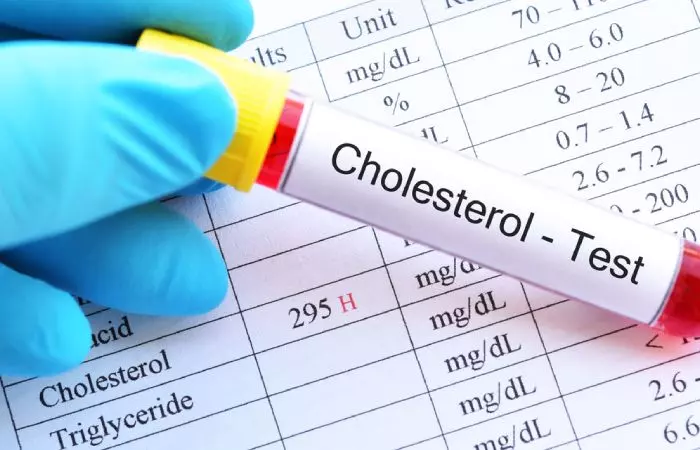
Cholesterol is a fatty, waxy substance found in the cells of our bodies that essentially aids various physiological functions, such as forming cell membranes, producing hormones (like estrogen and testosterone), and improving digestion. Cholesterol is carried by lipoproteinsi Particles made of proteins and fats that carry cholesterol through the bloodstream to your cells. in the blood, and is of two types: low-density lipoprotein (LDL), also called bad cholesterol, and high-density lipoprotein (HDL), also known as good cholesterol. While cholesterol is not inherently bad and is necessary in some amount for good health, excessive levels of LDL cholesterol have been associated with the formation of plaque that blocks the arteries, restricting blood flow and increasing the risk of heart disease and strokei Damage caused to the brain due to the interruption in its blood supply or when a blood vessel in the brain ruptures. (1). While good levels of HDL cholesterol may lower the risk associated with heart diseases. So maintaining a healthy balance of cholesterol through diet and lifestyle is crucial for overall well-being.
After understanding what exactly cholesterol is, let’s check out the factors responsible for high cholesterol, in the next section.
Key Takeaways
- Cholesterol is a waxy substance found in the body, which is essential for physiological processes like producing hormones, and digestion.
- It is carried by 2 types of lipoproteins: low density lipoproteins (LDL), and high-density lipoproteins (HDL). High level of LDL can increase the risk of heart diseases.
- High cholesterol can be due to genetics, sedentary lifestyle, obesity, or dietary choices.
- Making dietary changes like avoiding saturated and trans fats, processed food, refined oil, and sugary drinks may help manage the condition properly.
- Low cholesterol diet emphasizes consuming plant-based proteins, healthy fats, whole grains, fruits, and vegetables.
Causes Of High Cholesterol

High cholesterol is a condition characterized by elevated levels of low-density lipoprotein (LDL) cholesterol in the blood. According to the CDC, 86 million US adults have cholesterol levels above 200 mg/dl, considered to be high (2). High cholesterol does not have any symptoms, so it is important to get regular blood tests done to check your cholesterol levels. The factors that may attributed to high cholesterol are as follows:
- Dietary Choices: Consuming foods rich in saturated and trans fats, such as fried foods, processed snacks, and red meat, may increase LDL cholesterol levels (3). Mary Sabat, a registered dietitian, says, “Although saturated fat is now considered controversial as some studies show it has a neutral effect on cholesterol. In addition, sugar/carbs are the number one cause of high LDL.”
- Lack of Physical Activity: A sedentary lifestyle without any physical activity can lead to weight gain and higher LDL cholesterol levels, while regular exercise may help lower them (4).
- Genetics: Family history and genetics have an important role in cholesterol levels. If your family has a history of high cholesterol levels, it is recommended to get your levels checked as early diagnosis can help manage the condition better (5).
- Obesity: Being overweight or obese may increase the risk of cardiovascular issues due to increased LDL cholesterol levels, glucose levels, and insulin levels (6).
- Smoking: A study found that smokers had higher levels of HDL and LDL, putting them at an increased risk of cardiovascular disease (7).
- Medical Conditions: Certain medical conditions like diabetes, hypothyroidismi Condition in which thyroid gland does not produce enough thyroid hormone, leading to weight gain, and fatigue. , and kidney disease may impact cholesterol levels as they are correlated.
- Alcohol Consumption: Excessive alcohol intake may raise triglyceride levels and lead to an accumulation of fats in the blood, linked to a higher cholesterol level and an increased risk of cardiovascular disease (8).
As we have explored the various causes of high cholesterol, it is evident that our lifestyle and dietary choices play a crucial role. So let’s delve deeper into understanding how diet can impact cholesterol.
Does Your Diet Impact Your Cholesterol?
Absolutely, your diet has a significant impact on your cholesterol levels (3). The foods you consume can directly influence the levels of LDL (bad) cholesterol and HDL (good) cholesterol in your bloodstream. According to widely accepted theories, high saturated and trans fati Type of dietary fat which is unhealthy, often found in commercial baked goods, frozen and processed fast food. food can increase low-density lipoprotein (LDL) cholesterol in your bloodstream. Conversely, a diet rich in soluble fiber, unsaturated fats, and plant sterols may help lower LDL cholesterol. Consuming oily fish, like salmon, and nuts can raise high-density lipoprotein (HDL) cholesterol, removing excess cholesterol from your body. So making informed dietary choices is a fundamental step in managing and improving your cholesterol.
Now that we have established the significant role of diet in cholesterol management, let’s understand the key nutritional source of it to make informed dietary decisions!
What Is The Major Nutritional Source Of Cholesterol?
The major nutritional source of cholesterol in your diet comes from animal-based foods (9). Foods like meat, poultry, eggs, and dairy products are rich in dietary cholesterol. Among these, egg yolks notably have a high cholesterol content. However, it is crucial to recognize that saturated and trans fats, found in many animal-based products, may have a significantly higher impact on blood cholesterol levels. Mary adds, “Cholesterol in foods is not the cause of high cholesterol in the body and is not how you lower body cholesterol. It is mainly sugar/high carbohydrates and trans fats that increase our cholesterol levels”
To promote heart health, it’s advisable to limit the consumption of high-saturated-fat foods, sugar, carbs, and processed foods that contain trans fats, and opt for lean protein sources and plant-based alternatives that support better cholesterol profiles.
Best Proven Diets To Lower Cholesterol
Several types of diet have been proven to effectively reduce cholesterol and risk of heart disease. So here are some of those diets:
- Mediterranean Diet: This diet emphasizes the intake of fruits, vegetables, whole grains, nuts, seeds, and olive oil while limiting butter, red meat, processed foods, and saturated fats. It is rich in monounsaturated fats and omega-3 fatty acids from sources like fatty fish that have been shown to improve cholesterol profiles. A study suggests that this diet may reduce your cholesterol levels by 10% (10).
- DASH Diet (Dietary Approaches to Stop Hypertension): Originally designed to lower blood pressure, the DASH diet has also proven to benefit cholesterol management. Similar to the Mediterranean diet, it encourages a high intake of fruits, vegetables, whole grains, lean proteins, and low-fat dairy products and emphasizes reducing the intake of salt and processed foods (11).
- Plant-Based Diet: A plant-based diet, including vegetarian and vegan options, may help significantly lower cholesterol levels. It focuses on plant foods like fruits, vegetables, legumes, whole grains, nuts, soy products, and seeds while avoiding or minimizing animal products and saturated fats. Studies suggest that a vegetarian diet greatly reduces total cholesterol levels (12).
- Portfolio Diet: This diet incorporates specific cholesterol-lowering foods like oats, barley, almonds, plant sterols, and soluble fiber-rich foods. Studies have shown that it may lower LDL cholesterol levels effectively. Also a new diet combination, the Portfolio-Mediterranean diet, has emerged as one of the effective diets in reducing cholesterol (13).
- TLC Diet: The Therapeutic Lifestyle Changes (TLC) diet is a heart-healthy eating plan that focuses on keeping daily saturated fat intake below 7% of total calories, reducing cholesterol intake, increasing soluble fiber intake, and promoting the consumption of whole grains, fruits, vegetables, lean proteins, and low-fat dairy products (14).
Now that we have explored the best and most effective diets designed to lower cholesterol levels, let’s look deeper into the practical side of things by answering the fundamental question of how to lower cholesterol with the right diet.
How Can I Lower Cholesterol With Diet?
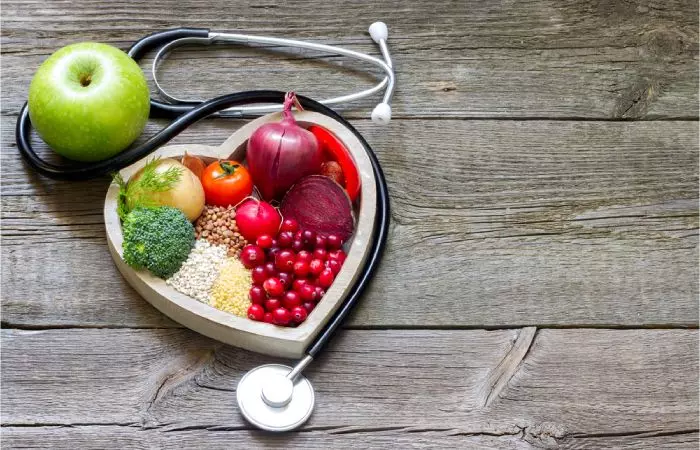
Lowering cholesterol through a diet plan involves making specific dietary choices and adopting healthier eating habits. Here are some effective ways to lower cholesterol through your diet:
- Reduce Saturated Fat: Limit foods high in saturated fats to reduce your cholesterol levels to 200mg. Try to limit foods such as fatty meats, full-fat dairy products, and tropical oils like coconut and palm. Replace them with lean protein sources and healthier fats (15).
- Choose Healthy Fats: Opt for unsaturated healthy fat options found in olive oil, avocados, nuts, and seeds. These fats may help improve cholesterol levels when used in moderation.
- Increase Soluble Fiber: Foods rich in soluble fiber, such as oats, beans, lentils, and fruits, may help lower LDL cholesterol by binding to it and preventing the body from absorbing cholesterol (16).
- Eat Fatty Fish: Incorporate fatty fish like salmon, mackerel, and trout into your diet. They are high in omega-3 fatty acids that may raise HDL (good) cholesterol and reduce triglycerides and LDLs (17). They also protect the heart by reducing inflammation and clots, lowering the risk of heart disease.
- Limit Processed and Sugary Foods: Reduce the consumption of processed snacks, sugary beverages, and foods with added sugars. Sugar and carbohydrates increase triglycerides, which may increase LDL cholesterol, contributing to weight gain and unhealthy cholesterol profiles.
- Increase Fruits and Vegetables: Aim to fill half your plate with different fruits and vegetables. They are low in calories, high in fiber, and rich in antioxidants that support heart health and lower LDL levels (18).
- Choose Whole Grains: Opt for whole grains like brown rice, whole wheat bread, and quinoa instead of refined grains. Whole grains are higher in fiber and nutrients that may lower LDL level and decrease cholesterol (19).
- Moderate Alcohol: If you consume alcohol, do so in moderation. Excessive alcohol or heavy drinking can raise triglyceride levels linked to higher cholesterol (8).
Apart from making these lifestyle changes, you may also follow a low-fat diet. Such a diet not only helps you lose weight but focuses on reducing your saturated fat intake, which may help lower bad cholesterol levels in your body.
While dietary changes play a crucial role in lowering cholesterol, regular check-ups are essential for tracking your progress and ensuring good long-term heart health. Scroll down to know more.
The Role Of Regular Check-Ups
Monitoring cholesterol levels and overall heart health requires regular medical check-ups. It is recommended to schedule lipid panel tests at least once every five years or more frequently if you are exposed to risk factors such as a family history of high cholesterol or heart disease. Monitoring your cholesterol levels can help you make well-informed dietary and lifestyle choices. These regular check-ups will also allow your healthcare practitioner to evaluate how well your diet and additional treatments are working.
Having explored the dietary changes that can help lower cholesterol levels, let us embark on a journey to discover a palette towards discovering healthy low cholesterol foods!
Healthy Low Cholesterol Foods
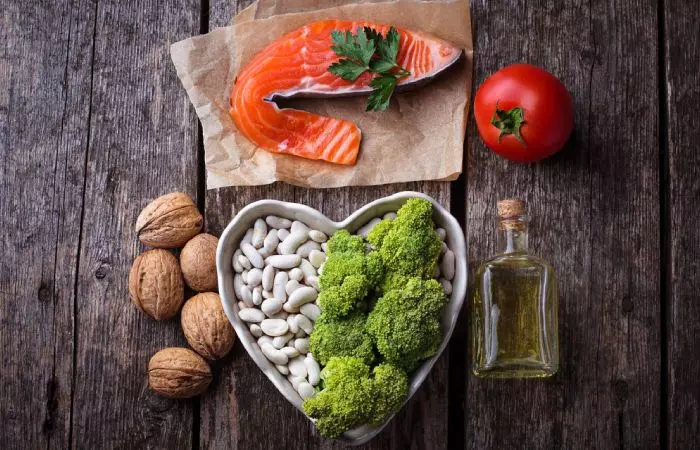
To make informed dietary choices, it’s important to know about healthy low cholesterol food items, so here is the list:
- Oats: High in soluble fiber, eating one or one and a half cup of oats may help reduce LDL cholesterol levels. A study showed that regular oat consumption reduces total cholesterol by 5% and LDL levels by 10% (20).
- Fatty Fish: Salmon, mackerel, and trout are rich in omega-3 fatty acids, known to lower triglycerides and improve heart health (17) Eating at least 2 servings of fatty fish a week can help you keep cholesterol in check.
- Legumes: Beans, lentils, and chickpeas are excellent sources of soluble fiber and plant-based proteins (21). Eating ½ cup of beans is recommended every day to keep cholesterol in check.
- Nuts: All nuts, especially almonds, walnuts, and pistachios, contain healthy fats and may help lower LDL cholesterol. A study suggests that consuming 50-100 gms of nuts five times per week may reduce cholesterol significantly (22).
- Fruits: Apples, citrus fruits, and berries are packed with fiber and antioxidants that support heart health (18). Eating 2-5 portions of a variety of fruits per week is recommended in a low cholesterol diet.
- Vegetables: Eating one to one and a half cups of vegetables like broccoli, spinach, kale, or brussels sprouts daily is recommended as they are rich in fiber, vitamins, and minerals that may help in lowering LDL levels (18).
- Whole Grains: Eating 2-3 servings of whole grains like brown rice, quinoa, and whole wheat grains is recommended daily as it provides fiber and nutrients (19).
- Avocado: Rich in monounsaturated fats, eating one avocado may help manage cholesterol by increasing HDL levels (23).
- Olive Oil: Extra virgin olive oil contains heart-healthy monounsaturated fats, polyphenols, and antioxidants that improves HDL functionality and reverses cholesterol transport (24). Try to incorporate at least 2 tablespoons of olive oil in your diet.
- Green Tea: Rich in catechins, green tea may help lower LDL cholesterol levels. In a study conducted on 1136 subjects, it was found that green tea consumption may significantly reduce cholesterol levels (25). Intake of 2 cups of green tea is recommended daily for a healthy heart.
- Soy Products: Tofu, soy milk, and edamame are plant-based sources of soy protein that may help lower cholesterol so try to incorporate at least 14-50g of soy protein in your diet. Research suggests that soy protein helps in reducing cholesterol by decreasing LDL levels (26).
Having explored the array of nutritious foods that help lower cholesterol levels, it’s equally important to understand the flip side of the coin. By understanding the food to avoid to lower cholesterol!
Foods To Avoid To Lower Cholesterol

To lower cholesterol levels, avoid or limit these high-cholesterol and artery-clogging foods:
- Saturated fats like fatty cuts of meat, poultry skin, and full-fat dairy products.
- Hydrogenated oils found in many processed and fried foods.
- Processed meats like sausages, hot dogs, and bacon are high in saturated fats and sodium.
- Fast food contains unhealthy trans fats, saturated fats, and excessive calories.
- Deep-fried items like french fries, chicken nuggets, and doughnuts absorb unhealthy fats during cooking.
- Sugary drinks like soda and fruit juices can contribute to weight gain and heart disease.
- Drink alcohol in moderation, as excessive consumption can cause high cholesterol.
- High-sodium foods like highly processed foods, canned soups, and excessive salt in cooking.
- Packaged cakes, cookies, and pastries contain sugars and carbs, which may raise LDL levels.
- Creamy, high-fat sauces in dishes, as they add unnecessary saturated fats and calories.
Note: Processed foods and snacks can include hidden sources of cholesterol. Foods marketed as low-fat or diet, in particular, may still include unhealthy fats and additives that can negatively impact cholesterol levels. So, always check food labels for cholesterol content. This way, you can rest assured that you are not unknowingly eating foods that could interfere with your attempts to reduce cholesterol.
Now that we have identified the dietary culprits to steer clear of for better cholesterol management, it’s time to create a roadmap to heart-healthy eating by embarking on a journey into crafting an effective low cholesterol diet meal plan!
Low Cholesterol Diet Meal Plan
Low cholesterol diet plan depends on individual preferences, dietary needs, and calorie goals, so it’s essential to customize it according to your needs. So here is a sample 7-day meal plan for low cholesterol diet:
| Day 1 | Breakfast
Lunch
Snack
Dinner
|
| Day 2 | Breakfast
Lunch
Snack
Dinner
|
| Day 3 | Breakfast
Lunch
Snack
Dinner
|
| Day 4 | Breakfast
Lunch
Snack
Dinner
|
| Day 5 | Breakfast
Lunch
Snack
Dinner
|
| Day 6 | Breakfast
Lunch
Snack
Dinner
|
| Day 7 | Breakfast
Lunch
Snack
Dinner
|
 Pro Tip
Pro TipWith our low-cholesterol diet meal plan in hand, it’s time to step into the kitchen and bring these heart-healthy choices to life. So find some cooking tips in the next section to help you prepare delicious, cholesterol-friendly meals with ease!
Cooking Tips To Help
Here are some cooking tips that help you cook delicious meals that support you in your journey towards a healthy heart:
- Use olive, canola, or avocado oils instead of butter or lard to reduce saturated fat.
- Bake, smoke, grill, or broil proteins like chicken and fish instead of pan or deep frying them to minimize added fats and discard fats that drain out while cooking them.
- Enhance the flavor of your dishes with herbs and spices rather than relying on excessive salt for seasoning.
- Choose lean cuts of meat, poultry, and fish to reduce saturated fat intake.
- Use low-fat or fat-free dairy products and be mindful of cheese portions.
- Cook vegetables with minimal oil to preserve their nutritional value.
- Check food labels for hidden sources of cholesterol, saturated fats, and trans fats.
- Modify recipes to reduce cholesterol-laden ingredients like egg yolks or excessive butter.
- Incorporate tofu, tempeh, and legumes into your meals as meat substitutes to cut down on saturated fat.
 Quick Tip
Quick TipIn the quest of a healthy life, the low cholesterol diet has emerged as a powerful ally. Our journey through dietary choices has illuminated the profound impact of what we eat on our cholesterol levels and overall well-being. As we conclude this exploration, it becomes abundantly clear that embracing a low cholesterol diet is not merely a dietary shift but a commitment to a healthier, active, and long life. By choosing nutrient-rich, cholesterol-friendly foods and adopting mindful cooking practices, we can nurture our hearts, reduce the risk of heart disease, and savor the delicious taste of wellness. The path to a healthier heart begins with dietary choices we make.
Frequently Asked Questions
Does garlic lower cholesterol?
Garlic may have a modest impact on lowering cholesterol levels, particularly LDL cholesterol, due to its potential to reduce blood clotting and inflammation (28).
Is Rice high in cholesterol?
No, rice itself is not high in cholesterol, but it has a high glycemic index and excess consumption of rice may increase LDL levels. Moreover, the preparation and accompanying ingredients can influence the overall nutritional content of a rice-based dish. For example, fried rice cooked with eggs and high-saturated-fat oils may contribute to higher cholesterol levels.
Are potatoes bad for cholesterol?
Potatoes themselves are not inherently bad for cholesterol. They are a low-fat, plant-based food and do not contain cholesterol. However, the cooking methods used to prepare them can impact their effect on cholesterol. For example, deep-frying potatoes to make French fries can increase cholesterol levels.
Can lemon juice reduce cholesterol?
Lemon juice alone is not a proven method for significantly reducing cholesterol levels. While some studies suggest that citrus fruits like lemons may have a modest impact on cholesterol due to their high vitamin C and antioxidant content, the effect is generally minimal (28).
What is a normal cholesterol level?
A normal cholesterol level can vary slightly but the following values are considered typical:
-Total Cholesterol: Less than 200 milligrams per deciliter (mg/dL) is considered desirable.
-LDL Cholesterol (Low-Density Lipoprotein): Less than 100 mg/dL is optimal for individuals at low risk of heart disease. For those at higher risk, such as people with diabetes or a history of heart disease, a target of less than 70 mg/dL may be recommended.
-HDL Cholesterol (High-Density Lipoprotein): Higher levels are better. An HDL level of 60 mg/dL or higher is considered protective against heart disease.
-Triglycerides: Less than 150 mg/dL is considered normal. However, lower levels are generally better.
Can a low cholesterol diet be effective for weight management?
Yes, a low cholesterol diet can be effective for weight management because it often emphasizes whole, nutrient-dense foods that are filling and lower in calories, promoting weight loss when combined with portion control and physical activity.
Illustration: Low Cholesterol Diet: Improve Your Heart Health Naturally
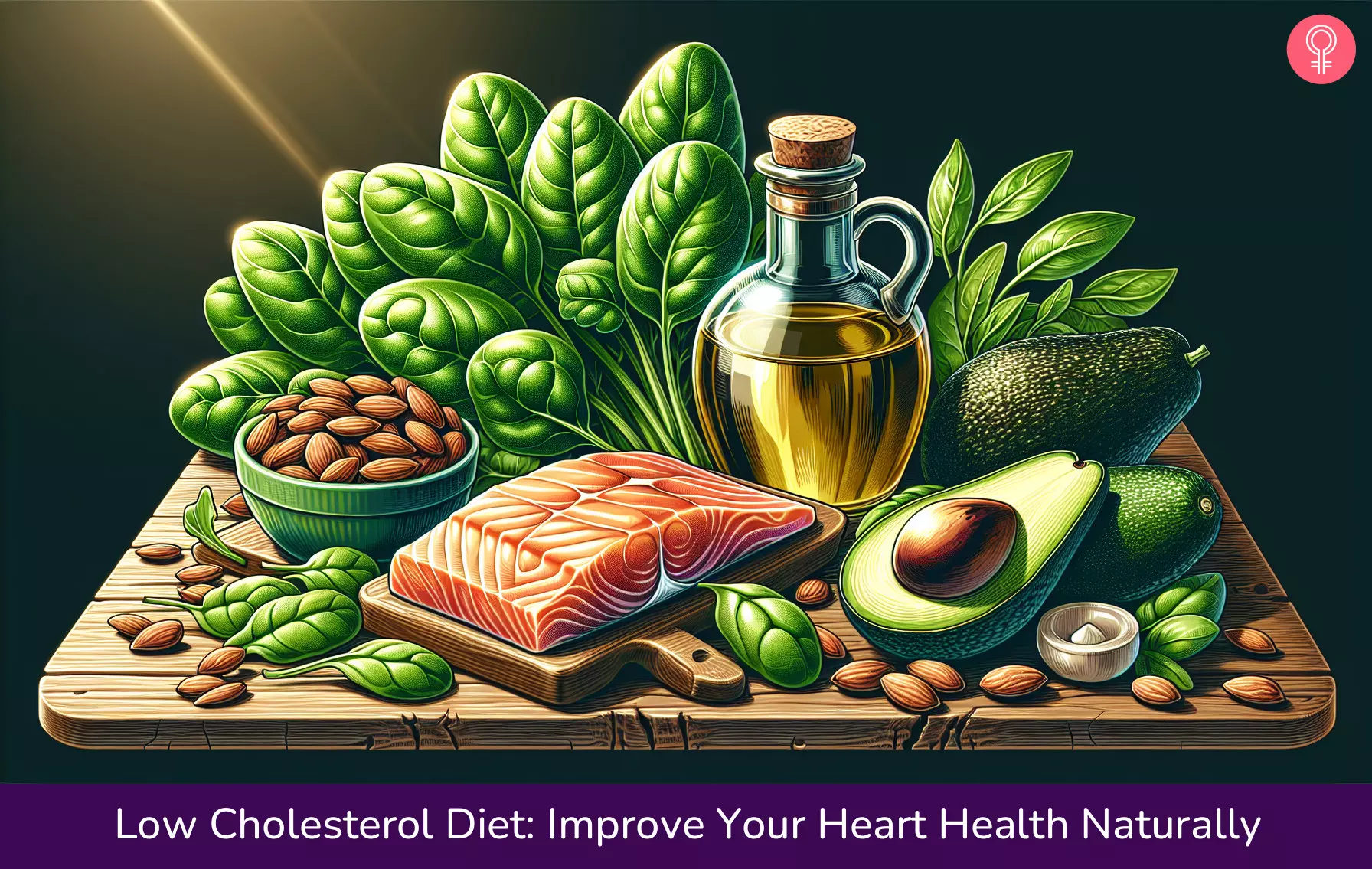
Image: Dall·E/StyleCraze Design Team
Learn about the low cholesterol diet in this quick video. It helps you understand which foods to savor and which ones to skip for better cholesterol levels and overall heart health.
References
Articles on StyleCraze are backed by verified information from peer-reviewed and academic research papers, reputed organizations, research institutions, and medical associations to ensure accuracy and relevance. Read our editorial policy to learn more.
- What is Blood Cholesterol?
https://www.nhlbi.nih.gov/health/blood-cholesterol - High Cholesterol Facts
https://www.cdc.gov/cholesterol/data-research/facts-stats/index.html - Is There a Correlation between Dietary and Blood Cholesterol? Evidence from Epidemiological Data and Clinical Interventions
https://www.ncbi.nlm.nih.gov/pmc/articles/PMC9143438/ - Physical activity
sedentary behavior time and lipid levels in the Observation of Cardiovascular Risk Factors in Luxembourg study - Genetics of Cholesterol-Related Genes in Metabolic Syndrome: A Review of Current Evidence
https://www.ncbi.nlm.nih.gov/pmc/articles/PMC9775320/ - Dyslipidemia in Obesity: Mechanisms and Potential Targets
https://www.ncbi.nlm.nih.gov/pmc/articles/PMC3705344/ - Relationships between Smoking Status, Cardiovascular Risk Factors, and Lipoproteins in a Large Japanese Population
https://www.ncbi.nlm.nih.gov/pmc/articles/PMC8532056/ - Associations between heavy alcohol drinking and lipid-related indices in middle-aged men
https://pubmed.ncbi.nlm.nih.gov/24239151/ - Animal source food intake and association with blood cholesterol, glycerophospholipids and sphingolipids in a northern Swedish population
https://www.ncbi.nlm.nih.gov/pmc/articles/PMC3753141/ - Effects of Mediterranean diet on lipid levels and cardiovascular risk in renal transplant recipients
https://www.ncbi.nlm.nih.gov/pmc/articles/PMC7386117/ - Comparison of the DASH (Dietary Approaches to Stop Hypertension) diet and a higher-fat DASH diet on blood pressure and lipids and lipoproteins: a randomized controlled trial1,2,3
https://www.ncbi.nlm.nih.gov/pmc/articles/PMC4733264/ - Effects of Vegetarian Diets on Blood Lipids: A Systematic Review and Meta-Analysis of Randomized Controlled Trials
https://pubmed.ncbi.nlm.nih.gov/26508743/ - Effects of a Portfolio-Mediterranean Diet and a Mediterranean Diet with or without a Sterol-Enriched Yogurt in Individuals with Hypercholesterolemia
https://www.ncbi.nlm.nih.gov/pmc/articles/PMC7386117/ - Therapeutic Lifestyle Changes (TLC) To Lower Cholesterol
https://www.nhlbi.nih.gov/education/TLC-Therapeutic-Lifestyle-Changes-Lower-Cholesterol - Saturated Fatty Acids and Risk of Coronary Heart Disease: Modulation by Replacement Nutrients
https://www.ncbi.nlm.nih.gov/pmc/articles/PMC2943062/ - Cholesterol-lowering effects of dietary fiber: a meta-analysis
https://pubmed.ncbi.nlm.nih.gov/9925120/ - High intake of fatty fish, but not of lean fish, affects serum concentrations of TAG and HDL-cholesterol in healthy, normal-weight adults: a randomised trial
https://pubmed.ncbi.nlm.nih.gov/27363518/ - Fruit and vegetable consumption and LDL cholesterol: the National Heart, Lung, and Blood Institute Family Heart Study
https://pubmed.ncbi.nlm.nih.gov/14749225/ - Whole-grain and blood lipid changes in apparently healthy adults: a systematic review and meta-analysis of randomized controlled studies
https://pubmed.ncbi.nlm.nih.gov/26269373/ - Effect of oat consumption on lipid profiles in hypercholesterolemic adults
https://pubmed.ncbi.nlm.nih.gov/24851570/ - Non-Soy Legume Consumption Lowers Cholesterol Levels: A Meta-Analysis of Randomized Controlled Trials
https://www.ncbi.nlm.nih.gov/pmc/articles/PMC2888631/ - A systematic review of the effects of nuts on blood lipid profiles in humans
https://www.ncbi.nlm.nih.gov/books/NBK72156/ - Avocado consumption and risk factors for heart disease: a systematic review and meta-analysis
https://pubmed.ncbi.nlm.nih.gov/29635493/ - Extra Virgin Olive Oil Polyphenols Promote Cholesterol Efflux and Improve HDL Functionality
https://www.ncbi.nlm.nih.gov/pmc/articles/PMC4606102/ - Green tea intake lowers fasting serum total and LDL cholesterol in adults: a meta-analysis of 14 randomized controlled trials
https://pubmed.ncbi.nlm.nih.gov/21715508/ - Soy isoflavones lower serum total and LDL cholesterol in humans: a meta-analysis of 11 randomized controlled trials
https://pubmed.ncbi.nlm.nih.gov/17413118/ - Efficacy and safety of turmeric and curcumin in lowering blood lipid levels in patients with cardiovascular risk factors: a meta-analysis of randomized controlled trials
https://pubmed.ncbi.nlm.nih.gov/29020971/ - Effect of Garlic and Lemon Juice Mixture on Lipid Profile and Some Cardiovascular Risk Factors in People 30-60 Years Old with Moderate Hyperlipidaemia: A Randomized Clinical Trial
https://www.ncbi.nlm.nih.gov/pmc/articles/PMC4977979/
Read full bio of Mary Sabat
Read full bio of Moksha Gandhi
Read full bio of Arshiya Syeda
Read full bio of Himanshi Mahajan






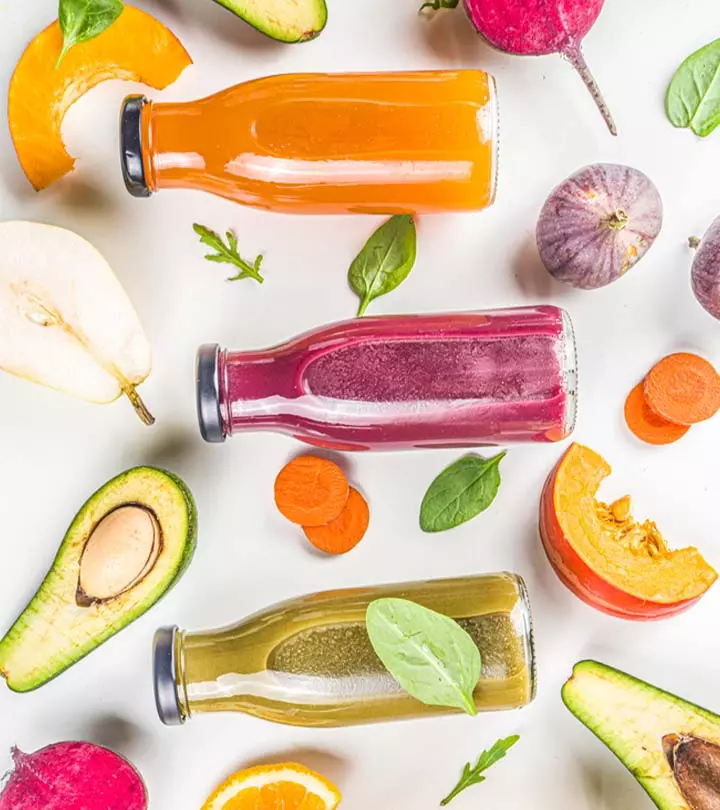

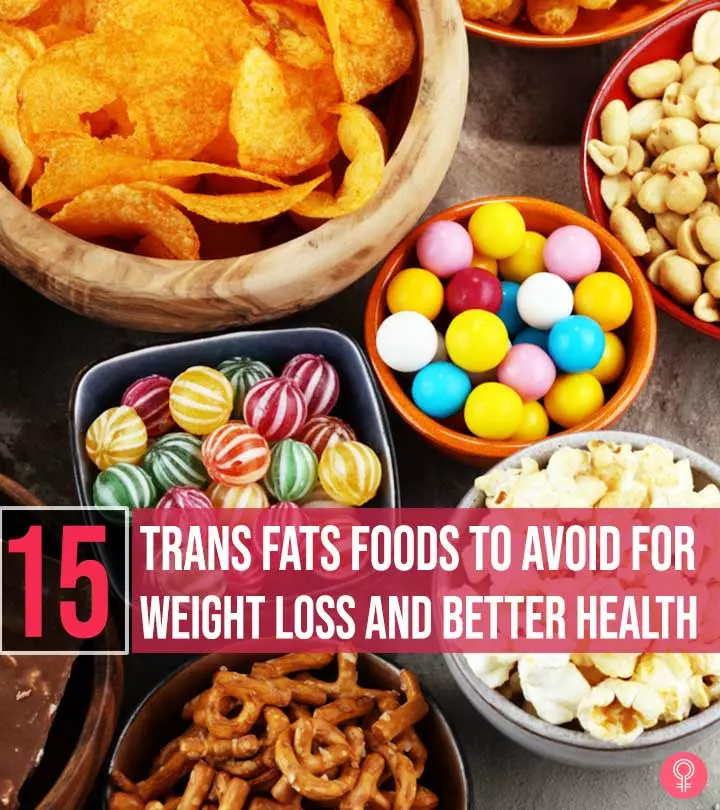
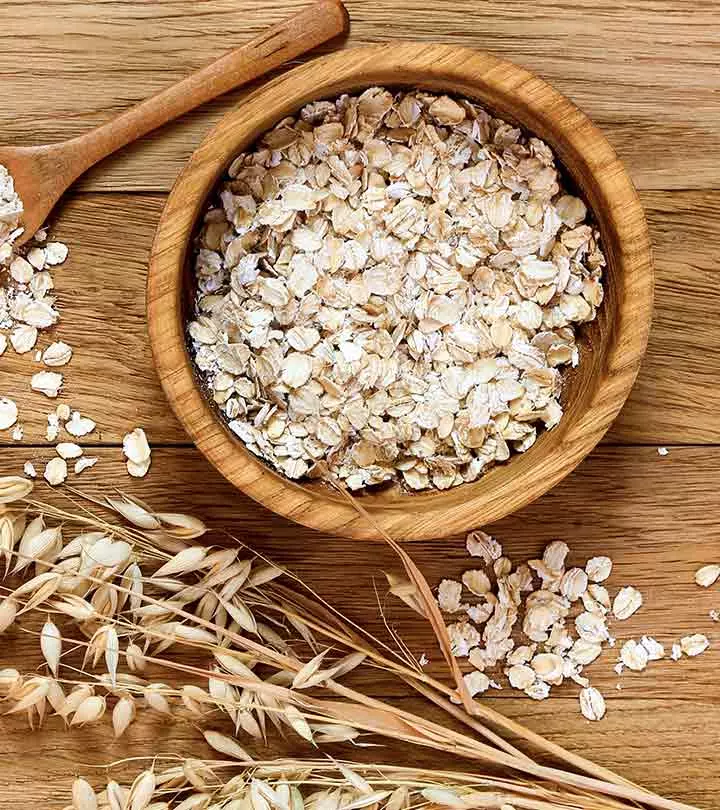
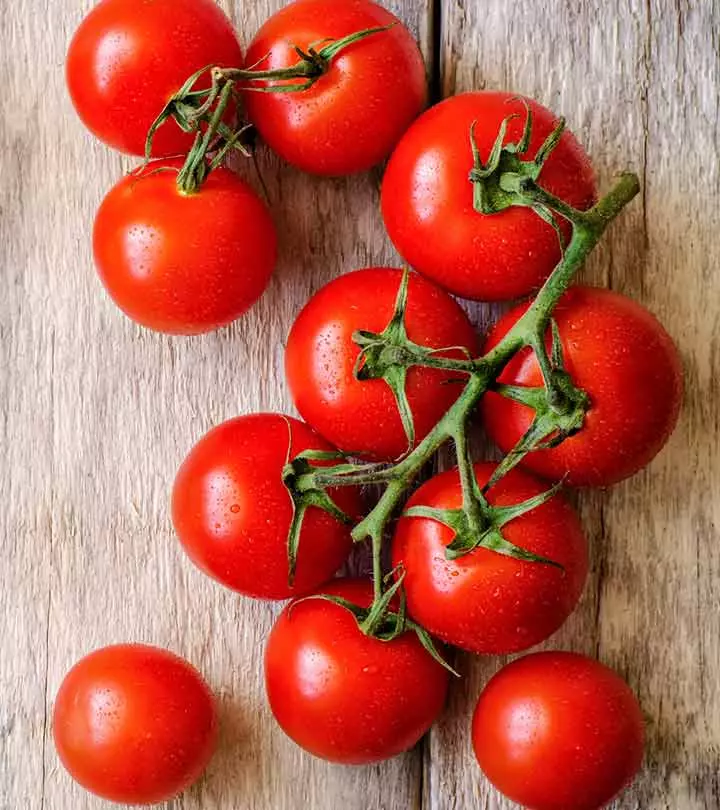

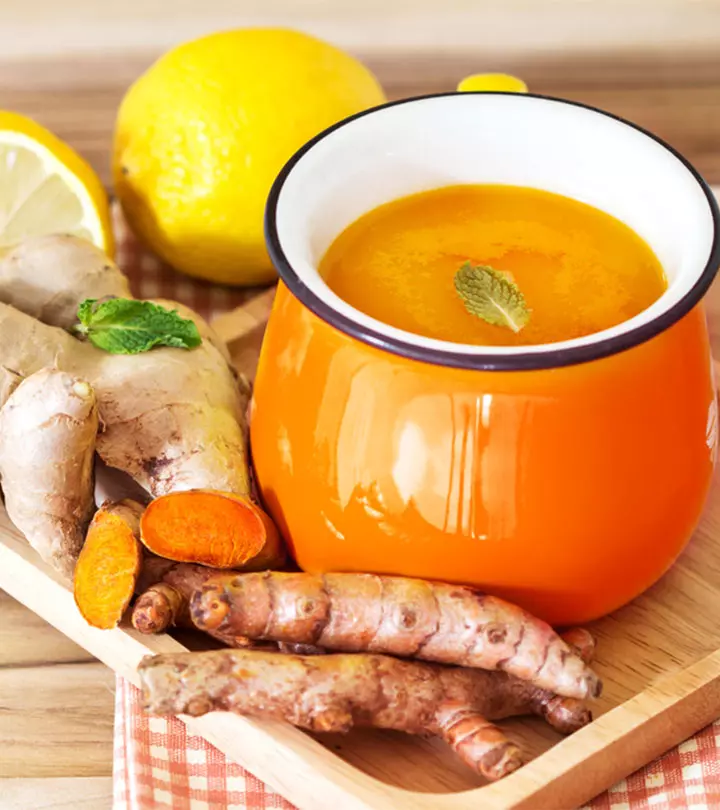
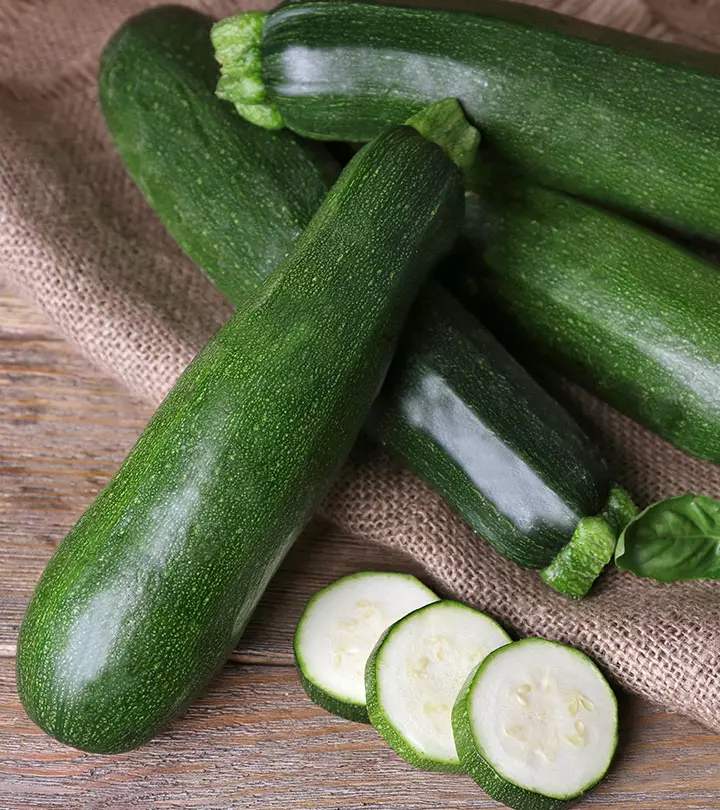
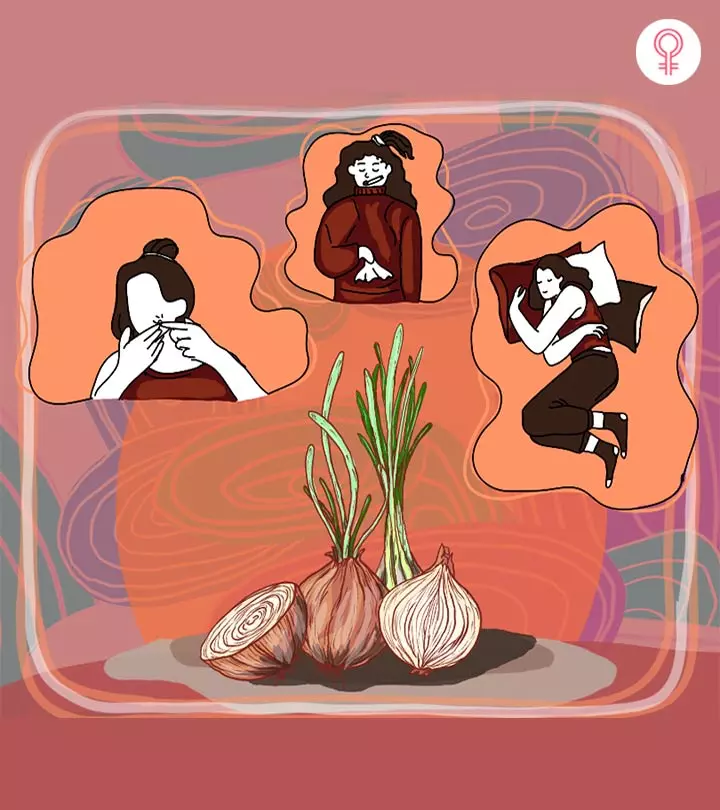


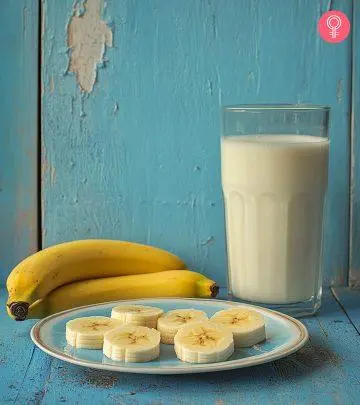

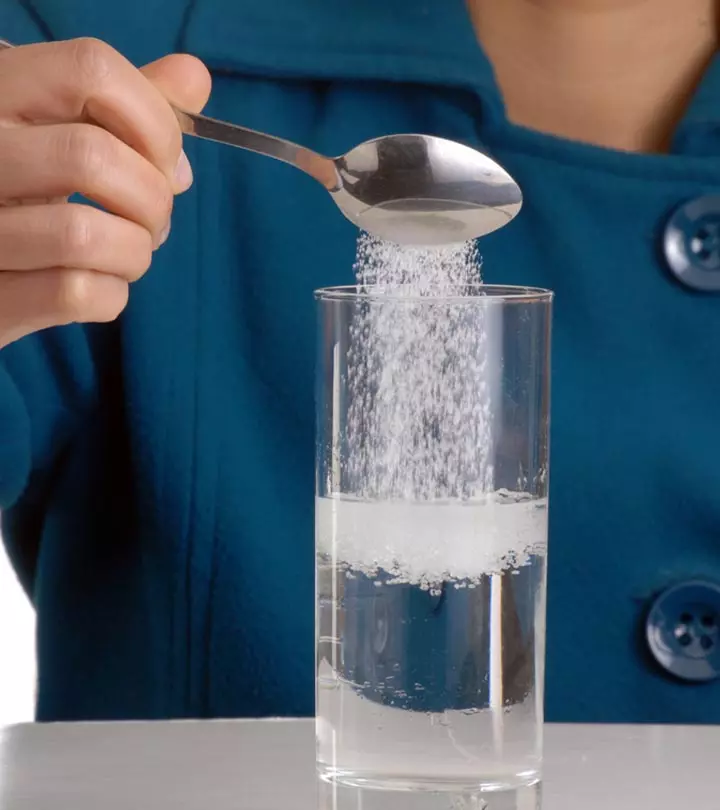

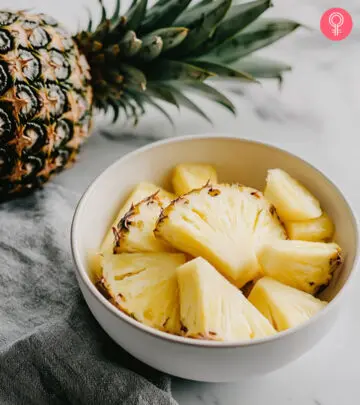
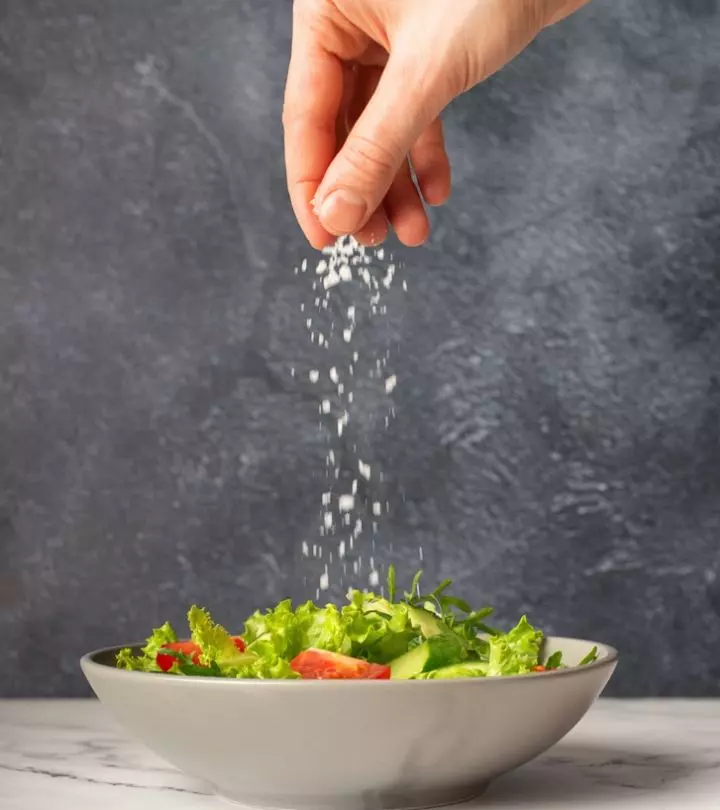

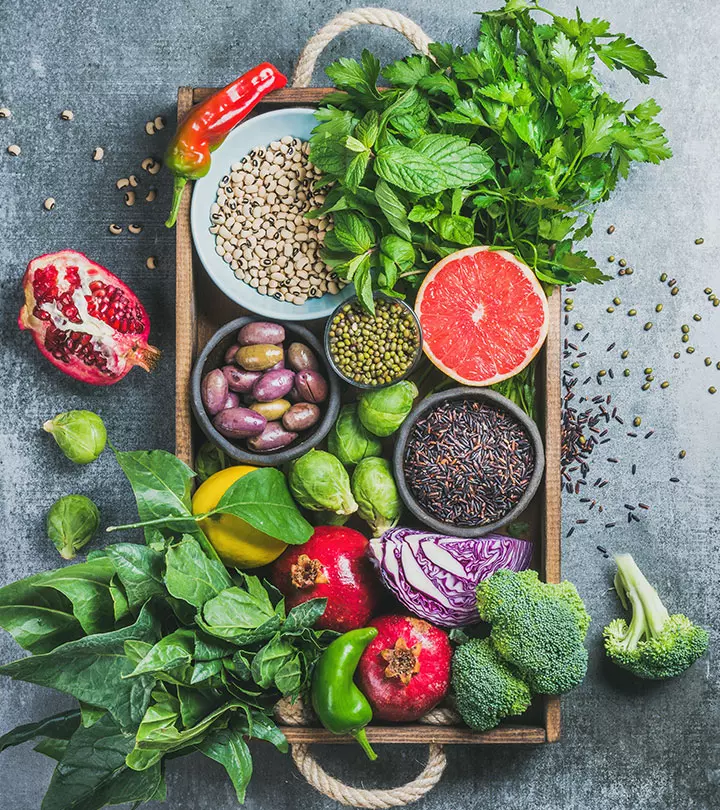
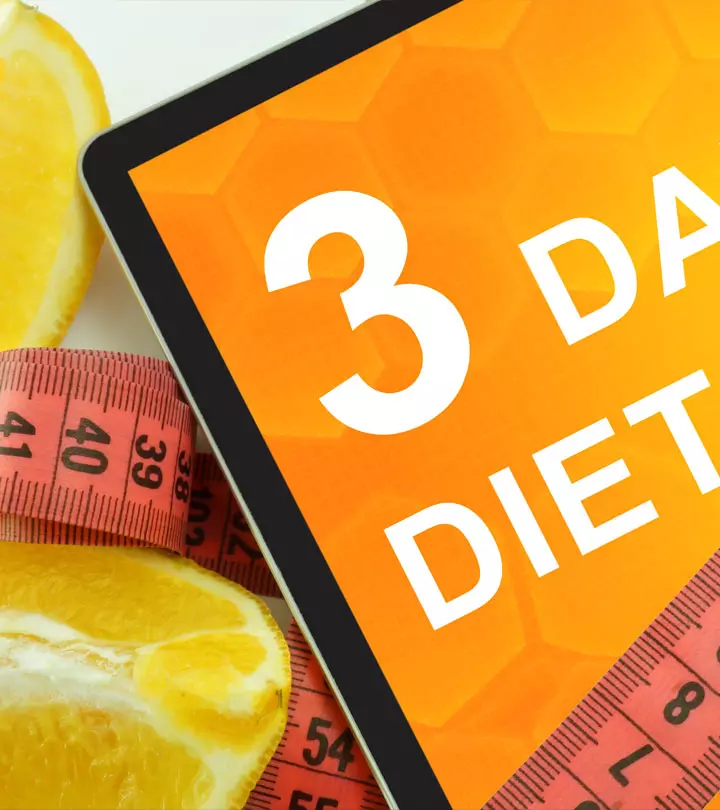

Community Experiences
Join the conversation and become a part of our empowering community! Share your stories, experiences, and insights to connect with other beauty, lifestyle, and health enthusiasts.